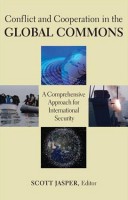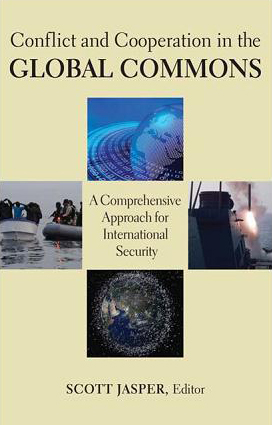 Editor: Scott Jasper
Editor: Scott Jasper
Publisher: Georgetown University Press – 260 pages
Book Review by: Paiso Jamakar
Today several countries – both friendly and unfriendly to the United States – have gained economic power and military capabilities, and concern has arisen about whether there can be peace and harmony in the near and distant future.
For example, China continues to increase its economic power by rapidly acquiring scarce assets around the world – resources such as agricultural land, access to water, oil-extracting and refining facilities, and precious metals such as gold and silver.
North Korea continues to acquire greater military capability, and challenge the U.S. by defying it, by violating basic human rights. It continues to refuse to sign agreements to limit the production of nuclear weapons. Elsewhere such as in the Middle East, Iran’s leaders are seemingly desirous of developing better relations with the U.S. but it is too soon to tell whether they are going to use their nuclear assets and capabilities for peaceful purposes only.
In the midst of such uncertainties – which cause us discomfort and unease toward our common global desire for peace and prosperity – this book has been published to addresses our concerns and point to areas where freedom of action is threatened – in the air, at sea, in outer space and in cyberspace.
Scott Jasper points out importantly at the outset of the book that the United States has, throughout its history, protected nations around the world from outside attacks and threats. It has helped provide free access to common resources such as air and the seas.
He writes: “Since the founding of the Republic, the US military has safeguarded American lives and trade abroad. Military power has not only provided security and prosperity for the nation; it has also protected international airspace and the high seas to guarantee the free flow of ideas, commerce, and travel around the world.”
“The global community must have unimpeded access to space ands cyberspace together with air and maritime domains. The ability to protect the commons is paramount to the progress, well-being, and stability of the entire international community.”
The book looks at various means to ensure that the above-mentioned common global domains continue to be protected and available for the good of all. Its 13 chapters look at issues ranging from the problems inherent in collective action to coercive methods, to the means for exploring opportunities for cooperation, to building on them to ensure harmony.
Its coverage is broad as it discusses the unique conflicts prevailing with respect to each of the commons: air, sea, space and cyberspace. And its approach is incisive as it details human behaviors that govern both conflict and cooperation.
Scott Jasper sheds light for us on a crucial area of international relations that most of us have not looked at closely enough, but need to: the global commons. This book will fill your knowledge gaps about shared international domains that are absolutely essential to our security and prosperity.
Scott Jasper is a retired navy captain, lecturer at the U.S. Naval Postgraduate School’s Center for Civil-Military Relations, and was formerly associate dean for the School of International Graduate Studies there. He has edited two previous books, Transforming Defense Capabilities, and Securing Freedom in the Global Commons.







